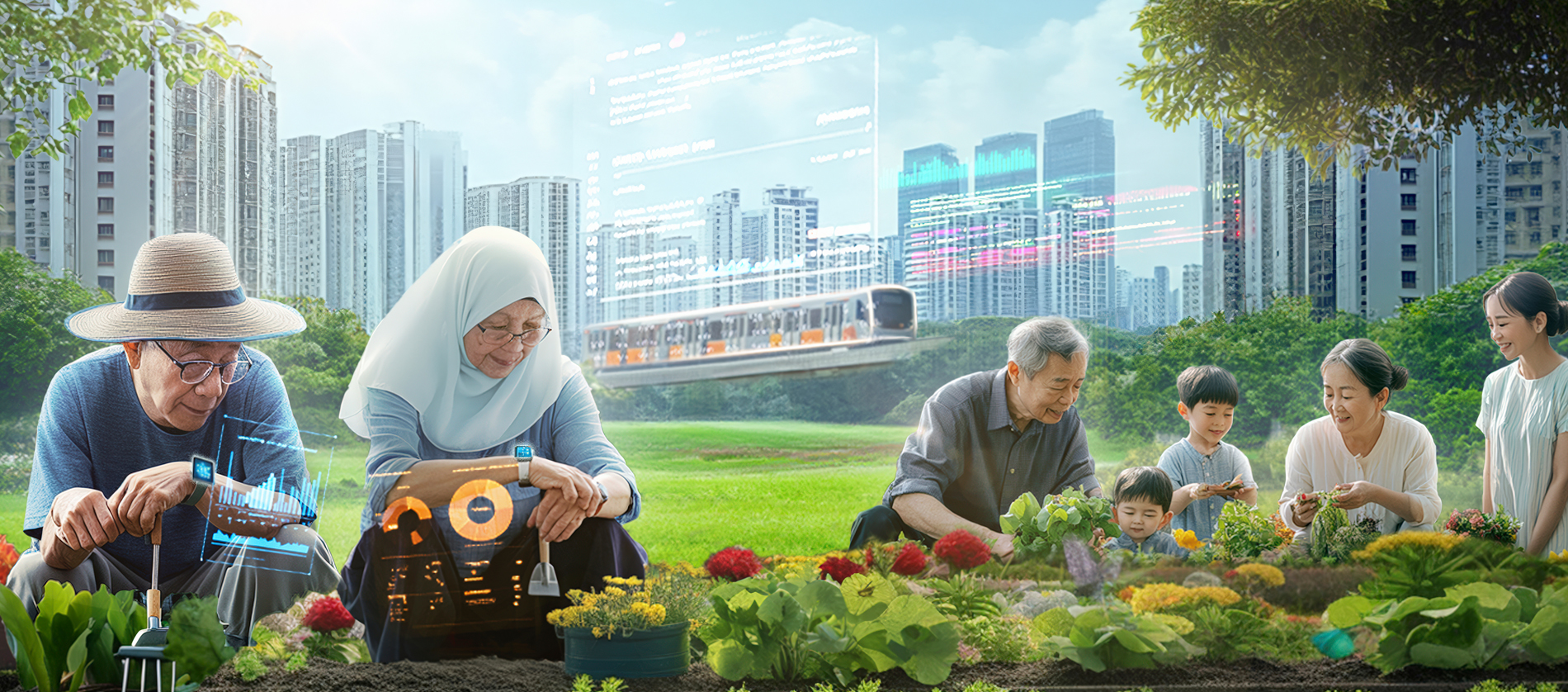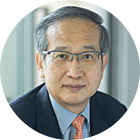
Dear Reader,
We are pleased to present to our community the next issue of the College of Design and Engineering (CDE) Research Newsletter. The focus of this issue is Ageing, a topic that is already broadly impacting society globally.
From using technology to address healthspan and lifespan to reimagining the future of work, home, and the longevity economy, the challenges raised by a rapidly ageing society necessitate transformative solutions. This is where CDE thrives.
Due to our uniquely accessible community of multi-disciplinary stakeholders in the broader community of the National University of Singapore (NUS) and the CDE ecosystem, our investigators have pioneered a wide range of solutions that are already moving the needle in addressing the needs mentioned above and other needs associated with healthy ageing and longevity.
This issue highlights some of the key advances from CDE. From data-driven insights to ageing and the built environment, microbiomes to electronic skin, and bio-inspired sensing to personalised health optimisation, our CDE community has made significant progress in addressing the societal challenges of ageing.
At the core of our work is our unique ability to bring together the key stakeholders necessary to turn ideas into real-world solutions. We invite you to explore this issue and gain a deeper understanding of our collaborative efforts in tackling the challenges of ageing.
All the best,
Dean Ho
Editor-in-Chief
OCTOBER ISSUE
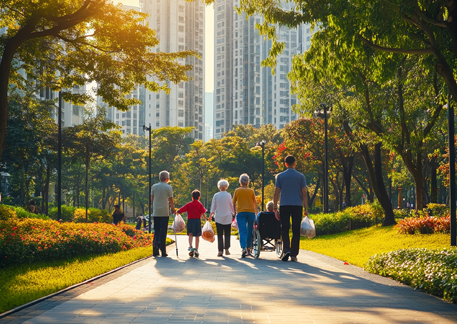
Golden years bring golden opportunities
The new Centre for Environment and Ageing Well at the College of Design and Engineering transforms how societies approach ageing-related challenges through research-driven solutions — ensuring an inclusive future in ageing.
Read More | PDF Download
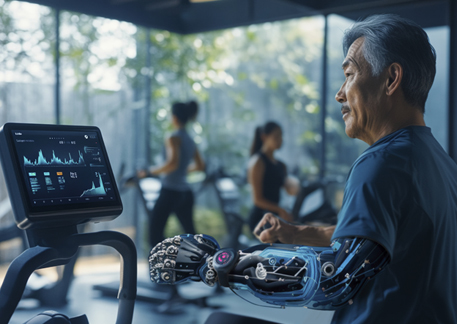
The biomedically engineered biomedical engineer
Harnessing digital devices to monitor the progress of health regimens reveals the potential of gamification to enhance adherence and optimise health.
Read More | PDF Download
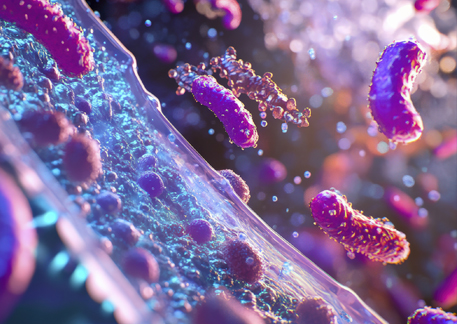
Into the world of gut microbes
A scalable, reproducible “micro-gut” model opens up new possibilities for studying the links between gut microbes and human diseases, paving the way for improved treatments and therapies.
Read More | PDF Download
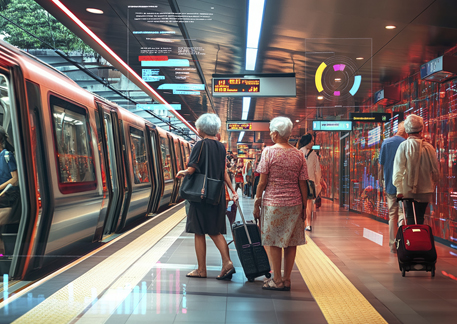
Navigating the complexity of senior mobility
A new data-driven model dissects the mobility patterns of older persons within urban transit systems, improving the understanding of their travel behaviours for more inclusive, accessible urban designs.
Read More | PDF Download
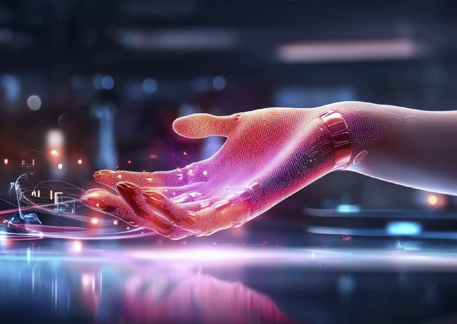
Giving robots a sense of touch
An E-Skin that combines optimised tactile sensors with deep-learning algorithms achieves tactile perception surpassing that of the human somatosensory system, advancing applications in robotics and wearable devices for healthcare and rehabilitation.
Read More | PDF Download
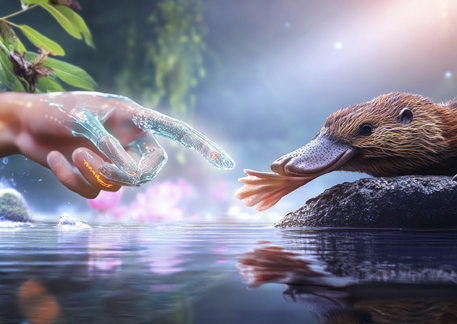
Learning from the platypus’s ‘sixth sense’
By integrating triboelectric and visuotactile sensing, a novel bionic electro-mechanosensory finger achieves both remote control and tactile perception, mimicking the platypus’s ability to sense electronical signals in murky waters and respond to physical stimuli.
Read More | PDF Download

Golden years bring golden opportunities
The new Centre for Environment and Ageing Well at the College of Design and Engineering transforms how societies approach ageing-related challenges through research-driven solutions — ensuring an inclusive future in ageing.
Read More | PDF Download

The biomedically engineered biomedical engineer
Harnessing digital devices to monitor the progress of health regimens reveals the potential of gamification to enhance adherence and optimise health.
Read More | PDF Download

Into the world of gut microbes
A scalable, reproducible “micro-gut” model opens up new possibilities for studying the links between gut microbes and human diseases, paving the way for improved treatments and therapies.
Read More | PDF Download

Navigating the complexity of senior mobility
A new data-driven model dissects the mobility patterns of older persons within urban transit systems, improving the understanding of their travel behaviours for more inclusive, accessible urban designs.
Read More | PDF Download

Giving robots a sense of touch
An E-Skin that combines optimised tactile sensors with deep-learning algorithms achieves tactile perception surpassing that of the human somatosensory system, advancing applications in robotics and wearable devices for healthcare and rehabilitation.
Read More | PDF Download

Learning from the platypus’s ‘sixth sense’
By integrating triboelectric and visuotactile sensing, a novel bionic electro-mechanosensory finger achieves both remote control and tactile perception, mimicking the platypus’s ability to sense electronical signals in murky waters and respond to physical stimuli.
Read More | PDF Download

Golden years bring golden opportunities
The new Centre for Environment and Ageing Well at the College of Design and Engineering transforms how societies approach ageing-related challenges through research-driven solutions — ensuring an inclusive future in ageing.
Read More | PDF Download

The biomedically engineered biomedical engineer
Harnessing digital devices to monitor the progress of health regimens reveals the potential of gamification to enhance adherence and optimise health.
Read More | PDF Download

Into the world of gut microbes
A scalable, reproducible “micro-gut” model opens up new possibilities for studying the links between gut microbes and human diseases, paving the way for improved treatments and therapies.
Read More | PDF Download

Navigating the complexity of senior mobility
A new data-driven model dissects the mobility patterns of older persons within urban transit systems, improving the understanding of their travel behaviours for more inclusive, accessible urban designs.
Read More | PDF Download

Giving robots a sense of touch
An E-Skin that combines optimised tactile sensors with deep-learning algorithms achieves tactile perception surpassing that of the human somatosensory system, advancing applications in robotics and wearable devices for healthcare and rehabilitation.
Read More | PDF Download

Learning from the platypus’s ‘sixth sense’
By integrating triboelectric and visuotactile sensing, a novel bionic electro-mechanosensory finger achieves both remote control and tactile perception, mimicking the platypus’s ability to sense electronical signals in murky waters and respond to physical stimuli.
Read More | PDF Download
PDF DOWNLOAD
Download the full issue below.
EDITORIAL BOARD
ISSUE 3
Editor-in-Chief:
Editorial Board Members:
SUBSCRIBE
Click Here to subscribe to our newsletter.
Images on this website were created with the assistance of DALL·E 2



